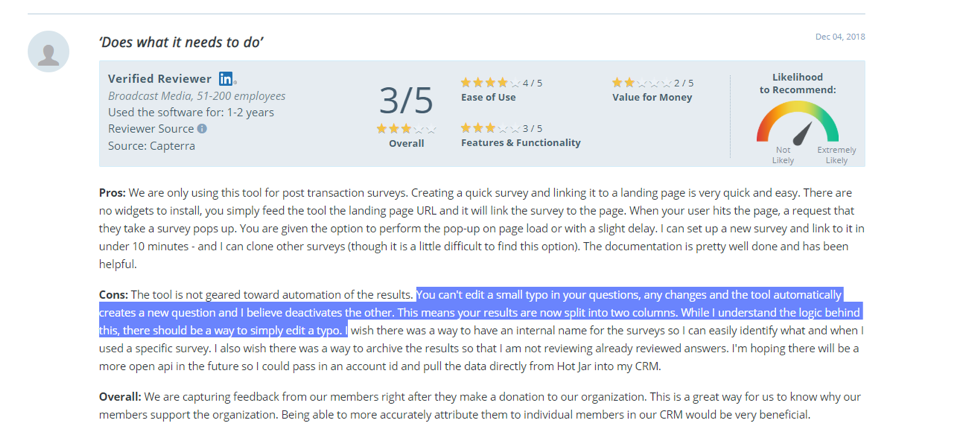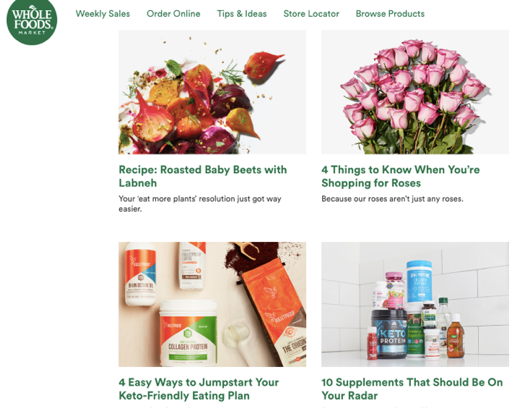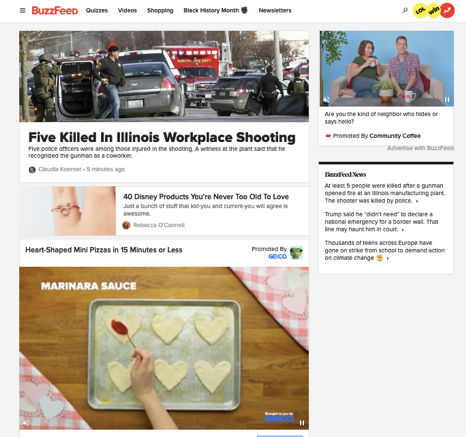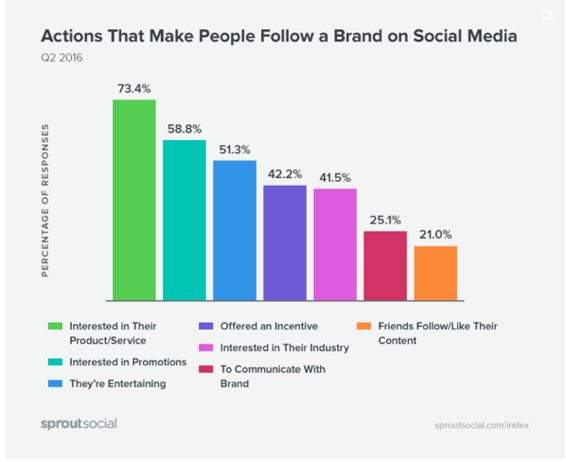The style and topic of your blog and social media formulate a story that connects customers to your brand
Your marketing content is a reflection of your brand personality. Just as your colour scheme, visual elements and overall aesthetics communicate what your brand is all about, so does your content. The style and topic of your blog and social media formulate a story that connects customers to your brand – both literally through SEO and figuratively through established sentiment.
However, creating top-notch content has always been a challenge for marketers. The demand for great content is extremely high, considering that the average customer views between three to five pieces of content before making the decision to purchase.
So, how can you ensure that the content your marketing team is creating is contributing to positive brand relationships with your customers?
1. Use customer problems for pertinent advice
Customer reviews can be used for more than just building trust with your customers or helping them decide whether or not to buy a specific item. They can also be used to shed a light on the biggest pain points with your business, as well as the popular topics regarding your brand.
Negative feedback can actually come in handy here. Take a look at your customer reviews and search for patterns that signal the biggest issues that result in negative feedback. Use this to help with content ideation and create posts that speak to these issues and offer answers/solutions that people may be looking for.
The key here is to draw out enough detailed information from customers to identify issues and topics for discussion. Rather than just asking for basic star ratings, be sure to prompt customers for more thorough feedback.
For example, one of the negative reviews for Hotjar, A/B testing software, mentioned that the program did not allow them to make any edits to their tests after launching. This review revealed a gap in Hotjar’s content, so they used this negative feedback as inspiration and created an informative piece of content on their blog with a step-by-step tutorial. The goal was to show future customers exactly how to make these changes so they would not have to face the same frustrations.

2. Don’t make sales a top priority
In general, the fastest way to kill a sale is by being pushy and overly "salesy." This is especially true with social media content. According to a report from Click Z, overly promotional content focused strictly on sales is the top reason people will unfollow a brand.
Now, this doesn’t mean that social media content shouldn’t promote your brand at all. The same study also found that 59% of consumers follow a brand because they are interested in learning about special deals. However, the focus of your content should be tilted towards the subjects that matter to your audience – sales should be secondary.
Click Z’s survey reported that the reason customers follow a brand on social media is related to learning more about their products, services, or the industry in general. In other words, the focus of your social content should be at the beginning of the buyer’s journey.
Social media monitoring is a great way to understand the topics that resonate with your audience. This will lead to better brand recognition by offering interesting insight within your content that fulfills customer’s needs and desires - like answering pressing questions, explaining concepts, or discussing trends in the industry.
Whole Foods does an excellent job of balancing promotional content with informational and engaging subjects through their blog. Since their target audience is health-conscious, much of their content revolves around healthy recipes and tips for better living.
Products are recommended in these posts, but they fit in quite naturally and are not obviously promotional. By keeping the focus on subjects that customers are interested in, Whole Foods is able to engage with their audience in a more meaningful way.

3. Test the trends (but don’t lose focus)
Interactive content, videos, podcasts and so on are all trendy, but that doesn’t necessarily mean these formats will vibe with your specific audience. Depending on the business you are operating, various types of content may work better than others.
There are various low-cost business ideas. One such idea is running an online digital product business, such as selling online courses or on-demand prints, then content forms like interactive quizzes for curated product lists might be relevant to narrow down your product offerings. On the other hand, thought leadership-type content such as e-books and webinars tend to work well for B2B companies.
You should certainly experiment when possible, but be sure that you are actively tracking the responses and conversion rates while keeping the content strategy in line with your brand voice and personality. This involves understanding who your audience is and knowing how they prefer to interact with your brand. Stay on top of engagement metrics as you test out various trends until you find the content marketing mix that works best.
Remember, various content types may work best with different segments within your audience. Buzzfeed does this quite well, considering their follower base contains many vastly different segments. Their content ranges from long-form articles on newsworthy topics to humorous videos to interactive quizzes – all of which are designed to attract various targeted segments depending on their interests.

Conclusion
Creating great content doesn’t need to be mysterious or difficult. By simply understanding what your audience wants to talk about, learn about, as well as how they want to do it can lead to more meaningful content. The trick is to keep the focus on your customers. Use your content to foster relationships and provide an excellent experience - the conversions will naturally follow.
Manish Dudharejia is the President and Founder of
E2M Solutions Inc, a San Diego Based Digital Agency that specializes in Website Design & Development and eCommerce SEO. With over 10 years of experience in the Technology and Digital Marketing industry, Manish is passionate about helping online businesses to take their branding to the next level.












